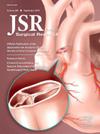外科医生和内科医生职业寿命的性别差异:一项长达十年的分析
IF 1.7
3区 医学
Q2 SURGERY
引用次数: 0
摘要
医师和外科医生的退休模式受性别、专业和实践环境的影响,影响劳动力构成和公平。我们假设男性外科医生的职业生涯持续时间更长,比女性同行更不可能退休,不同专业之间存在差异。方法数据来自美国联邦医疗保险中心;对医疗补助服务国家可下载数据库(2014-2024)进行分析,以确定不同亚专科的内科医生和外科医生的职业持续时间和退休状况。职业年限定义为医生在数据库中出现的最近年份减去毕业年份;退休被定义为他们的国家供应商识别码不再存在的年份。单变量和多变量逻辑回归分析了人口统计变量、实践环境和趋势,并通过交互分析评估了专业和性别的退休几率。结果280,727名医生中,女退休率为33.8%,男退休率为33.7% (P = 0.69)。女性医生的职业生涯比男性短(30年[25-36]vs . 35年[28-42]),P <;0.001)。在外科医生中,女性退休人数较少(29.6%比32.6%);0.001),但男性的职业生涯较长(41年[34-47]对30年[24 - 38]),P <;0.001)。男性外科医生在2024年更有可能留在劳动力市场(优势比为1.5,置信区间为1.34-1.60)。与男性普通外科医生相比,女性心脏外科医生、普通外科医生、骨科医生、泌尿外科医生和整形外科医生留在工作岗位上的几率更低。结论与女性相比,男性外科医生职业生涯更长,劳动力留存率更高。外科专业的性别差异强调了支持女性外科医生职业寿命和解决劳动力不平等问题的必要性。本文章由计算机程序翻译,如有差异,请以英文原文为准。
Gender Disparities in Career Longevity Among Surgeons and Physicians: A Decade-Long Analysis
Introduction
Physician and surgeon retirement patterns are influenced by gender, specialty, and practice settings, impacting workforce composition and equity. We hypothesize that male surgeons have longer career durations and are less likely to retire than their female counterparts, with differences across specialties.
Methods
Data from the Center for Medicare & Medicaid Services National Downloadable Database (2014-2024) were analyzed to determine career duration and retirement status among physicians and surgeons across various subspecialties. Career duration was defined as the most recent year a physician appeared in the database minus their graduation year; retirement was defined as the year their National Provider Identifier number was no longer present. Univariable and multivariable logistic regression analyzed demographic variables, practice settings, and trends, with an interaction analysis assessing the odds of retirement by specialty and gender.
Results
Among 280,727 physicians, retirement rates were 33.8% for females and 33.7% for males (P = 0.69). Female physicians had shorter careers than males (30 [25-36] versus 35 [28-42] years, P < 0.001). Among surgeons, fewer females were retired (29.6% versus 32.6%, P < 0.001), but males had longer careers (41 [34-47] versus 30 [24 - 38] years, P < 0.001). Male surgeons were more likely to remain in the workforce in 2024 (odds ratio 1.5, confidence interval 1.34-1.60). Female cardiac, general, orthopedic, urologic, and plastic surgeons had lower odds of remaining in the work force compared to male general surgeons.
Conclusions
Male surgeons exhibit longer careers and greater workforce retention than females. Gender disparities across surgical specialties emphasize the need to support female surgeons’ career longevity and address workforce inequities.
求助全文
通过发布文献求助,成功后即可免费获取论文全文。
去求助
来源期刊
CiteScore
3.90
自引率
4.50%
发文量
627
审稿时长
138 days
期刊介绍:
The Journal of Surgical Research: Clinical and Laboratory Investigation publishes original articles concerned with clinical and laboratory investigations relevant to surgical practice and teaching. The journal emphasizes reports of clinical investigations or fundamental research bearing directly on surgical management that will be of general interest to a broad range of surgeons and surgical researchers. The articles presented need not have been the products of surgeons or of surgical laboratories.
The Journal of Surgical Research also features review articles and special articles relating to educational, research, or social issues of interest to the academic surgical community.

 求助内容:
求助内容: 应助结果提醒方式:
应助结果提醒方式:


